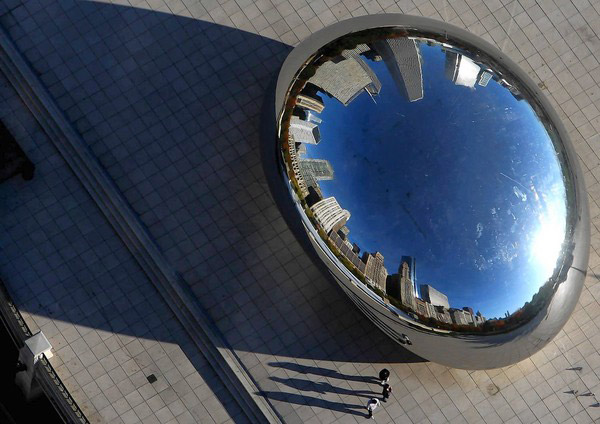
A couple years ago Chicago lost out on the 2016 Olympics, which was the cause for some lamentation. This week, it's starting to seem like we dodged a bullet. Or not so much a bullet as a missile:
While many are resigned to tougher security as just one more inconvenience in a city handicapped by overcrowded, ageing infrastructure, some have bristled, especially at a proposal to put surface-to-air missiles on civilian buildings.
[snip]
"How did something that was supposed to be a joyful celebration end up becoming a joyless and fearful cross between a North Korean Party Congress and a minor war?" blogged science writer Michael Hanlon in the Daily Mail online edition.
"It is supposed to be fun … If, at any time, surface-to-air missiles are involved, you know it cannot be fun."
Then again, one of the nicest places in Chicago was once home—perhaps within your lifetime, though not quite mine—to a Nike missile battery, Hyde Park's bucolic Promontory Point. Apparently they made "nice neighbors," and obviously didn't prevent the enjoyment of frisbee.
Not that roof missiles are the only hassle in London. The mayor of Newham, the poor London borough near Olympic Stadium, is looking for takers for 32,000 low-income families likely to be displaced by rising rents—an exodus comparable in size to the CHA's plan for transformation. The city has virtually no rent protections, so landlords are evicting tenants to cash in wildly inflated rental prices. This a pretty typical side-effect of the Olympics.
(Even the NATO consolation prize has brought surprise inconveniences: the militarized "Red Zone" around federal buildings that the city says it wasn't consulted on.)
More controversial, but pretty interesting, is Dave Zirin's argument that the L.A. riots of 1992 followed policing strategies implemented for the 1984 Summer Olympics:
Before the Olympics, Gates was on thin ice as police chief. In 1982, he infamously said that African-Americans died under a chokehold used by police officers because “the veins or arteries do not open up as fast as they do on normal people.” But Gates emerged from the Olympics as an untouchable hero. Every incentive for him and his department was to stay in “Olympic mode.” Treating the city as occupied territory became institutionalized.
From 1984–89, there was a 33 percent spike in citizen complaints against police brutality. The complaints went nowhere. According to a Los Angeles Times investigative report, the district attorney’s office chose not to prosecute the “vast majority” of complaints. Between 1986 and 1990, 1,400 officers were investigated on suspicion of using excessive force, less than 1 percent were prosecuted.
So why bother with these expensive, disruptive mega-events? The same reason cities bother with things like publicly financed sports stadiums and infrastructure trusts: welcome to the "postfederal" age (PDF).
Beginning in the early 1980s, federal aid to cities was cut. While some local governments responded by reducing development activities, others adopted more entrepreneurial policies for economic development…. The postfederal period is characterized by a greater willingness of local governments to take risk… and greater reliance on public-private partnerships or quasi-public agencies to implement development projects.
The decline in the federal government's support of cities is one aspect. The other is the "global economy":
For governments and businesses, however, it became increasingly evident that competition for jobs and investments would no longer be primarily with the state or city next door; competition now took place on a global stage…. Cities, particularly in the hardest-hit regions of the country, began to focus on alternatives to production-based jobs. Leisure and consumption-oriented development marked the shift towards a post-industrial, service-dominated economy as cities catered to the needs of corporate headquarters, high-tech industries, and the advanced producer services that support them.
The combination of declining federal aid and increasing worldwide competition for business meant that American cities not only had to employ more entrepreneurial techniques to promote development but had to do so on the world stage. Among the strategies that city leaders have pursued under the guise of getting jobs and enhancing their competitive advantage is the pursuit of mega-events, such as the Olympic Games.
NATO, the failed 2016 Olympic bid, possible tax breaks for Wrigley, and the Chicago Infrastructure Trust are all part of the same spectrum, and come from the same recent urban history. The "postfederal" era rises out of the tax revolt of the 1970s and the Reagan Revolution, and the entrepreneurial city, as Susan Clark and Gary Gaile call it, is a response to this combination of an economy dominated by high earners, fluid transnational industries, and minimized federal domestic policies. Rahm Emanuel has begun to take a bit of a post-honeymoon pounding on the Trust and NATO, but they haven't occurred in a vacuum. It started not just with the last mayor, but even higher up than Da Mare.
Photograph: Chicago Tribune


